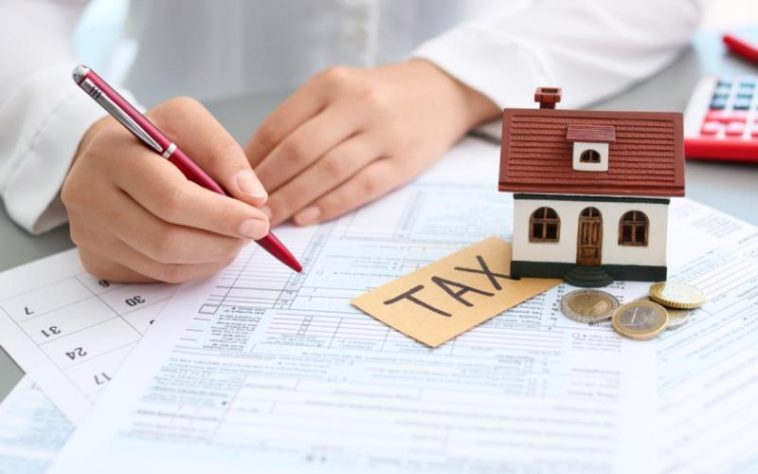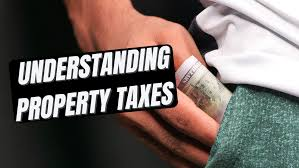
Dubai Real Estate Taxation: Dubai’s real estate market in 2025 is a global investment hub, with 99,000 transactions worth AED 326.7 billion in H1 and projected 5-9% price growth, per Dubai Land Department (DLD) data. Expats, drawn by 6-10% rental yields and no personal income or capital gains tax, increasingly use corporate structures for property investments to optimize returns or manage multiple assets.
However, the UAE’s federal corporate tax, introduced in June 2023, imposes a 9% rate on taxable income above AED 375,000 (~$102,000), affecting corporate entities. Qualifying Free Zone Persons (QFZPs) in Jebel Ali Free Zone can secure 0% corporate tax if non-qualifying mainland income is below 5% or AED 5 million, and small businesses with revenue under AED 3 million qualify for relief until 2026.
The Domestic Minimum Top-up Tax (DMTT), effective January 2025, ensures multinationals pay at least 15% globally. Below are five corporate tax rules expat investors must understand to navigate Dubai’s real estate market, ensuring compliance and maximizing tax efficiency.
Unlike individuals, who face no personal income or capital gains tax on rental income or property sales, corporate entities holding Dubai real estate are subject to a 9% corporate tax on taxable income exceeding AED 375,000 annually, per Federal Decree-Law No. 47 of 2022. For example, a mainland company owning a AED 2 million Business Bay apartment yielding AED 140,000 in rent (7%) incurs 9% tax on profits above AED 375,000 after deductions (e.g., service charges, maintenance).
Expats using companies for investments must register with the Federal Tax Authority (FTA) and file returns by September 30, 2025, for the 2024 fiscal year. To avoid tax, hold properties as individuals or use a QFZP entity in a free zone like Jebel Ali, ensuring mainland income stays below thresholds. Consult a tax advisor to structure ownership correctly.
Expats can leverage Qualifying Free Zone Person (QFZP) status in free zones like Jebel Ali to achieve 0% corporate tax on qualifying income, such as rental revenue from international or free zone tenants, provided non-qualifying mainland income (e.g., UAE mainland rentals) is below 5% of total revenue or AED 5 million.
For a free zone company owning a AED 3 million Dubai Marina office yielding AED 240,000 annually, all income could be tax-free if structured as a QFZP. Setup costs AED 10,000-15,000, but savings outweigh this for high-value portfolios. Ensure compliance with FTA’s QFZP criteria, including audited financials and no permanent establishment in the mainland. This makes free zones ideal for expat investors managing commercial or residential properties via corporate entities.

Corporate entities with annual revenue below AED 3 million (~$816,000) qualify for small business relief, paying 0% corporate tax until December 31, 2026, per FTA rules. For an expat-owned company holding a AED 1 million JVC apartment with AED 75,000 annual rent (7.5% yield), no corporate tax applies if total revenue (including other income) stays under AED 3 million.
This relief suits first-time expat investors or those with smaller portfolios. Maintain accurate records for seven years, as required by FTA, to avoid AED 10,000 penalties for non-compliance. After 2026, assess whether to shift to individual ownership or a QFZP structure to maintain tax efficiency. Engage a UAE tax consultant to confirm eligibility and filing requirements.
Commercial properties, unlike residential ones, face 5% VAT on purchases and leases, affecting corporate cash flow. A corporate entity buying a AED 4 million office in Downtown Dubai pays AED 200,000 VAT, plus 4% DLD fee (AED 160,000). Rental income from commercial leases also incurs 5% VAT if annual revenue exceeds AED 375,000, requiring FTA VAT registration.
For a AED 300,000 annual lease, AED 15,000 VAT is collected but can be offset if the entity is VAT-registered. Residential properties are zero-rated (0% VAT) for first sales and exempt for leases, making them tax-efficient for corporate holdings. Expats should prioritize residential investments or recover VAT on commercial properties by registering with FTA, ensuring compliance to avoid penalties.
Expats using corporate entities face home-country tax risks on Dubai real estate income, but the UAE’s 193 Double Taxation Agreements (DTAs) with countries like the U.S., UK, and India prevent double taxation. For a U.S. expat’s company earning AED 500,000 in rental income, the 9% UAE corporate tax (AED 11,250 on income above AED 375,000) can be credited against U.S. taxes via IRS Form 1118, reducing liability.
Non-UAE tax residents report income per home-country rules; U.S. citizens file Form 1040 for worldwide income, despite UAE’s 0% personal tax. Obtain a UAE Tax Residency Certificate (TRC) if spending 183+ days in the UAE to leverage DTAs, proving residency via visas and financial ties. Consult a cross-border tax advisor to optimize DTA benefits and avoid audits.
These corporate tax rules 9% tax on entities, QFZP exemptions, small business relief, VAT on commercial properties, and DTAs shape expat strategies in Dubai’s real estate market, where 70% of Q1 2025 transactions were off-plan, per DLD. Corporate structures offer asset protection but face taxes individuals avoid, potentially cutting 10-15% of rental yields (e.g., 7% gross to 5.5% net).
With 90-95% occupancy and 10-12% rent growth forecast, tax efficiency is key. Hidden costs like 4% DLD fees, 2% commissions (+5% VAT), and service charges (AED 10-25/sq.ft.) add 6-8% to budgets. The First-Time Home Buyer Programme’s 5% discounts and 30-50% R&D credits for eco-projects enhance affordability, while RERA escrow accounts ensure security.
Hold properties as individuals to avoid corporate tax, or use QFZP entities for 0% tax, ensuring mainland income compliance. Target small business relief for portfolios under AED 3 million. Prioritize residential properties for 0% VAT and recover commercial VAT via FTA registration.
Leverage DTAs with a TRC, filing IRS Form 1118 for U.S. expats or equivalent for others. Budget for fees and service charges, negotiating DLD splits. Muslim investors account for 2.5% Zakat (e.g., AED 3,500 on AED 140,000 rent). Partner with firms like Tulpar Global Taxation for compliance and optimization.

Dubai’s 6.2% GDP growth, Metro Blue Line expansion, and 25 million tourists drive demand, per DLD’s AED 761 billion 2024 transactions. Oversupply (76,000 units) is offset by high absorption and RERA protections. Corporate investors benefit from tax-free capital gains for individuals, but entities must navigate corporate tax. By mastering these rules, expats secure 6-10% yields and 8-15% capital gains in a dynamic, tax-friendly market.
Understanding corporate tax rules entity taxation, QFZP benefits, small business relief, VAT implications, and DTAs is essential for expat investors in Dubai’s 2025 real estate market. Strategic structuring, compliance with FTA, and leveraging tax incentives ensure expats maximize returns while navigating corporate obligations in a thriving, tax-advantaged landscape.
read more: Dubai Real Estate: 6 Capital Gains Tax Myths Debunked for Investors
